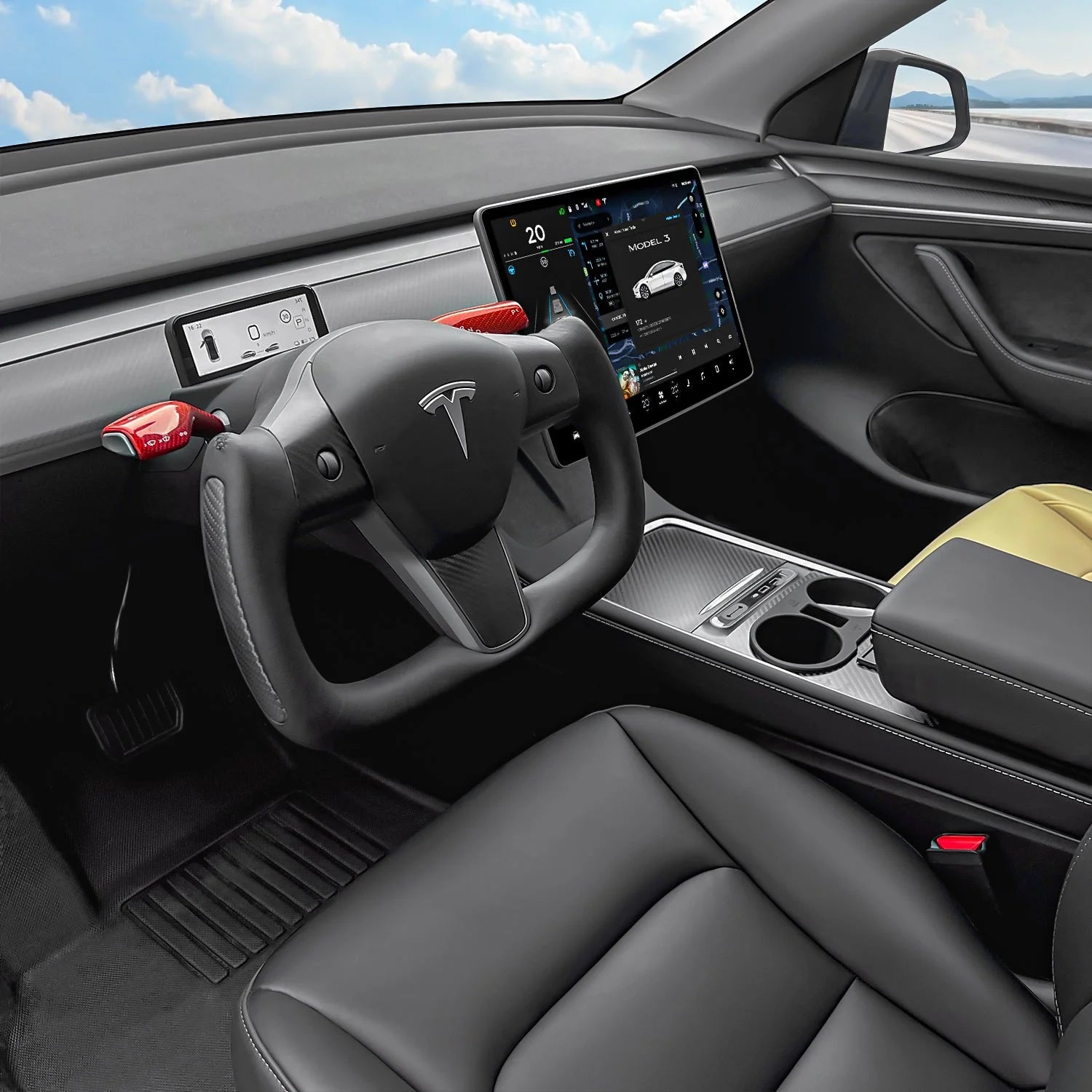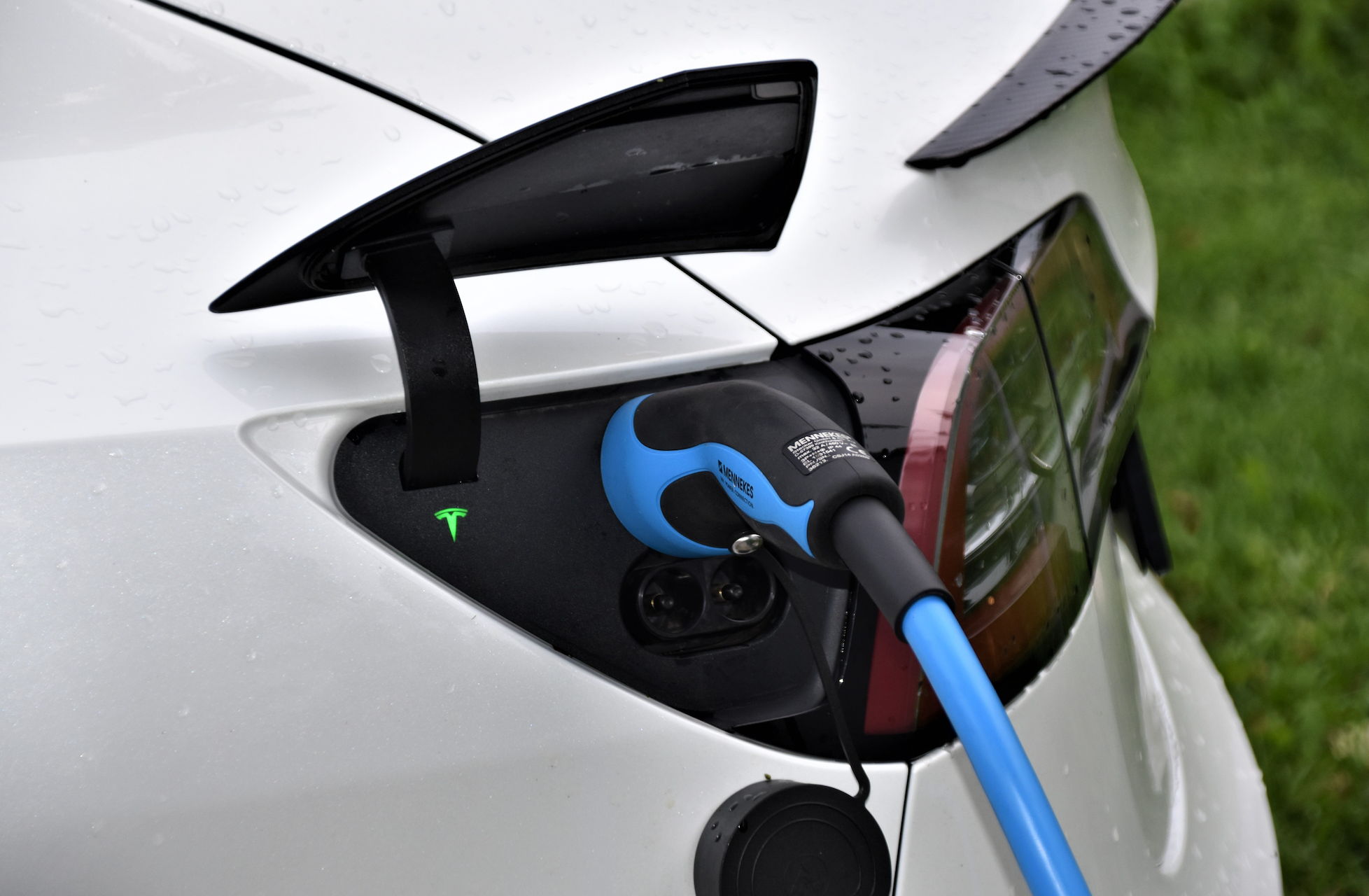Updated on: 25.07.2024
Introduction to Electric Car Home Charging
With the rise in popularity of electric vehicles, a common question that many prospective owners are pondering is, "Can I charge my electric car at home?"
The short answer is, yes!
Charging your electric car at home is not only possible but is also one of the most convenient and cost-effective methods of keeping your vehicle powered up and ready for the road. However, there are a few things to consider before you start plugging in your electric car at home. In this guide, we will delve into the ins and outs of home charging for electric cars, offering comprehensive insights to ensure you are well-equipped to make the most of this technology.
Understanding Electric Vehicle Charging: The Basics
EV charging is a simple yet very basic process of delivering energy to the batteries of an electric vehicle so that it runs efficiently. The simple working principle governing EV charging is: the electrical energy derived from a power source is converted and stored as chemical energy in a vehicle battery.
It involves some key components and steps that work together to charge successfully.
An EV charger consists of basic elements: a charging station, an onboard charger installed in the vehicle, and a battery. The very charging station supplies electric power from the grid to the vehicle.
This can be located at home, public charging points, or commercial stations. The vehicle's onboard charger does the conversion of this incoming AC from the charging station to DC suitable for battery storage.
What is an EV Charger?
An Electric Vehicle (EV) charger, also referred to as EV charging station, electric recharging point, or simply charging point, is a piece of equipment that supplies electric energy to recharge electric vehicles. These chargers come in various types and capacities, providing options for different charging speeds.
Types of Home Chargers for Electric Cars
There are two types of electric car chargers currently available for home use: Level 1 and Level 2. Let's take a closer look at each type and their differences.
Level 1 Charging: Standard Outlet Charging
Level 1 charging, also known as "Standard Outlet Charging," uses a 230-volt AC plug— the type found in every residential house. This means you can plug your electric vehicle into any standard electrical outlet to charge, just as you would a laptop or mobile phone. While Level 1 charging is the most accessible and straightforward method of charging an electric vehicle, it is also the slowest. Usually Level 1 chargers’ power is between 1.7 kW and 3.6 kW.
A typical electric car can take anywhere from 8 to 40 hours to fully charge using a Level 1 charger. However, for daily commutes of less than 65 km, a nightly recharge should suffice.
Level 2 Charging: Faster Home Charging Solutions
Level 2 charging, aptly named "Faster Home Charging Solutions," utilises a 380-volt AC plug, similar to those used for heavy-duty household appliances like clothes dryers or electric stoves.
While Level 2 chargers require a dedicated circuit and professional installation, their faster charging times make them an excellent option for electric vehicle owners who desire convenience and efficiency. These chargers are also referred as 3-phase chargers and they have 11 kW or 22 kW of power.
How Long Does It Take to Charge an Electric Car at Home?
The time taken to charge an electric car at home can vary quite a bit, depending on your car's battery size and the type of charger you're using. If you're using a Level 1 charger—the one that plugs into a standard household outlet—it could take anywhere from 8 to 40 hours to fully charge a completely drained battery. On the other hand, if you're using a Level 2 charger—the kind that requires professional installation and uses a 380-volt plug—then you could fully
charge your battery in just 2 to 6 hours. These charging times are estimates, and the actual time taken may vary depending on factors such as battery capacity, temperature, and power output of the charger.
Installation of Home Charging Station
When it comes to installing a home EV charger, there are several factors to consider.
The process can be straightforward, or it may become slightly more complicated and cost you more, depending on your home's electrical setup and the EV charger you choose.
Evaluating Your Home’s Electrical System
Before installing a home charging station, it is crucial to assess your home's electrical system and determine if it can support the additional demand for energy.
Why? Because you need to ensure it can handle the additional energy demand that comes with charging an electric vehicle. Older homes, for instance, may not have the necessary electrical infrastructure to accommodate a home charging station. It's advisable to let a professional handle this kind of work.
Choosing the Right Location for Your Charger
Selecting the correct location for your EV charger is crucial for practicality and ease of use.
Here are some key points to consider:
- Proximity to Vehicle: Ideally, the charging station should be positioned as closely as possible to your vehicle's charging port to avoid the need for long cables which can be a tripping hazard.
- Accessibility: The location should allow easy access for your vehicle. A garage, carport, or private driveway are most suitable.
- Weather Protection: If possible, the charger should be placed in a protected environment, particularly if you live in an area with harsh weather conditions.
- Ventilation: Chargers can produce heat while operating, so a well-ventilated area is recommended.
- Power Supply: The location must be close to a power supply, or you'll need to consider the costs of running a new line to your chosen spot. Consideration of these factors can ensure a safe, convenient, and cost-efficient home charging setup for your electric vehicle.
Professional Vs. DIY: Installation Options for EV Home Chargers
When it comes to the installation of your home EV charger, you'll have two main options: professional installation or do-it-yourself (DIY) installation.
Professional installation is recommended, particularly for Level 2 chargers, as it involves complex electrical work that requires a certain level of expertise to ensure safety and proper functioning. A professional electrician can assess your home's electrical system, make necessary upgrades, and ensure the charger is installed correctly and in compliance with local regulations.
On the other hand, DIY installation might seem a more appealing option due to the potential for cost savings. It's important to note, however, that DIY installation should only be undertaken by those who have significant electrical knowledge and are confident in their skills. Incorrect installation could lead to poor charger performance and could pose significant safety risks.
Cost of Installing a Charging Station at Home
Setting up a home charging station for your electric vehicle comes with its own set of expenses. The cost can vary significantly, depending upon various factors.These mainly include the type of charger, installation costs, and the rate at which electricity is billed.
Cost of the EV Wall Charger
The average price of an EV wall charger can be around €400, although this can fluctuate depending on the specific model purchased.It's worth noting that while this is a one-time cost, it is a key component in the budgeting process when deciding to transition to an electric vehicle.
Installation Costs
Installation costs can vary greatly depending on your home's existing electrical setup.If you already have an outlet in your garage or driveway, the installation cost will be minimal, restricted primarily to the cost of the charger. However, if you don't have a 240-volt power supply near your preferred charging location, you'll need to install a 3-phase one (380V). This could
potentially add a few hundred euros to the total cost, depending on the complexity and distance of the installation. For older homes running on a lower-end electrical service capacity (such as
30 or 60-amp service), an electric service upgrade may be required. This can significantly increase the total cost, potentially amounting to several thousand euros.
Electricity Rates
In Europe, the average cost of home plug charging is approximately €0.22 per kWh. Thus, charging a 40 kWh battery to full capacity would cost around €8.80. This is a recurring cost that needs to be factored into the overall budget.
By taking all these points into account, you can have a better understanding of the cost implications involved in home charging for electric vehicles.
Can Any Electric Car Use a Home Charger?
Generally, all-electric cars can utilise a home charger, although the charging speed and efficiency may vary depending on the vehicle model and the type of charger installed.
Both Level 1 and Level 2 chargers are universally compatible with electric vehicles, provided they have the appropriate connector - the J1772 plug for North American cars and the Type 2 plug for European models.
However, for fast charging options, compatibility is more specific and relies on the vehicle's onboard charging capability. It's worth noting that certain vehicle manufacturers offer proprietary home charging solutions that are particularly optimised for their models, although these are typically more expensive.
As always, it's essential to consult your vehicle's manual or the manufacturer for specific charging recommendations.
The Evolution of Electric Vehicle Charging Technology
EV charging technology has really taken off from the early days with a number of developments increasing convenience and efficiency.
First came Level 1 chargers, offering basic home charging from standard 230-volt outlets. Accessible but slow, they often necessitated an overnight recharge.
Then there were added-power Level 2 chargers, which used 380-volt outlets to charge quickly and make daily usage in service.
Other advances include the Level 3 DC Fast Chargers, which rapidly recharge batteries by applying current directly and cutting times to about 30 minutes for an 80% charge.
Modern technologies such as inductive, cable-less charging—most often referred to as wireless charging—and ultra-high-speed charging, pushing power levels over 350 kW, will make an incredible difference in the way people are recharging.
These inventions have the aim of making the process of EV charging much quicker, integrated with modern energy systems, easier, and friendly to the growing needs of electric vehicle owners and supporting the transition to sustainable transport.
Final Thoughts
In conclusion, the answer to the question, "Can you charge electric cars at home?" is a resounding yes. Both Level 1 and Level 2 chargers can be installed at your residence and can handle the vast majority of electric vehicles in the market. While the installation process and costs may vary based on your home's existing electrical setup, the convenience and potential savings make it a worthwhile investment.
So, as we move towards a future of sustainable transportation, home charging stands as a practical solution for electric vehicle owners.




